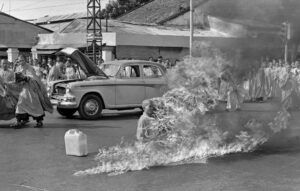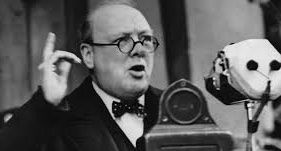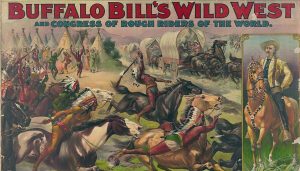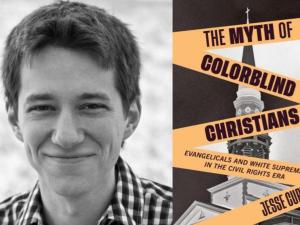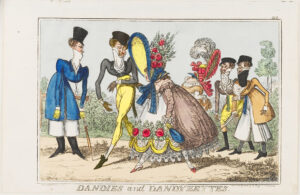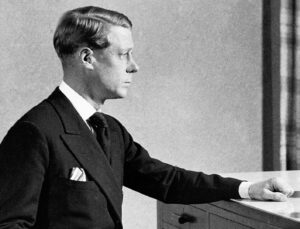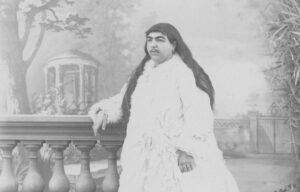Myths
Malcolm Browne and the Self Immolation of Thích Quảng Đức
Ray Boomhower joins us to discuss how the most unlikely of war correspondents, Malcolm W. Browne, became the only Western reporter to capture Buddhist monk Thích Quảng Đức’s horrific self-immolation on June 11, 1963. Thích Quảng Đức made his ultimate sacrifice to protest the perceived anti-Buddhist policies of the Catholic-dominated administration of South Vietnam’s president…
Read MoreChurchill’s Wartime Speeches: the Untold Story
Professor Richard Toye explains the background and context of Winston Churchill’s famous World War II speeches, from how they were written, to how they were delivered, to how the public reacted. Not only is it much more complex than the legend has it, the full history provides us with a much greater understanding of World…
Read MoreThe Wild West
“The Wild West” is one of the strongest conceptions in American history. But “where” was the west? How “wild” was it? “Who” settled it? Did settlers build the west with their hands? And how many of the stories about settlers and Native Americans are myths or misconceptions? Professor Edward O’Donnell helps us explain it all,…
Read MoreThe Myth of Colorblind Christians
Dr. Jesse Curtis shows us how white evangelicals in the 20th century US grew their own institutions and created an evangelical form of whiteness, infusing the politics of colorblindness with sacred fervor. They deployed a Christian brand of colorblindness to protect new investments in whiteness. While black evangelicals used the rhetoric of Christian unity to…
Read MoreAmericans Bailing Out the French
Donald Trump talks about Americans being “suckers” to their allies. Is Uncle Sam really “Uncle Sucker”? Did the United States really “bail the French out in two world wars,” or is it a blustering, bigoted myth? Professor Philip Nash joins us to discuss what happened in World Wars I and II, and whether the United…
Read MoreBritish Dandies: Engendering Scandal and Fashioning a Nation
Well-dressed men have played a distinctive part in the cultural and political life of Britain over several centuries. But unlike the twenty-first-century hipster, the British dandies provoked intense degrees of fascination and horror in their homeland and played an important role in British society from the seventeenth to the twentieth century. Dr. Dominic Janes reveals…
Read MoreOnce a King: The Lost Memoir of Edward VIII
Jane Marguerite Tippett discusses her new book about Edward VIII, the English king who abdicated the throne in 1936 for the woman he loved, the American socialite Wallis Simpson. She describes the complexity of his life and the almost innumerable myths about his political views, his hopes for the British monarchy, and his famous meeting…
Read MoreThe False Cause: Fraud, Fabrication, and White Supremacy in Confederate Memory
Professor Adam Domby explains why the Lost Cause of the Confederacy is full of fraud, fabrication, and white supremacy. And he analyzes how it is expressed in statuary, memory, and commemoration in the American South in the Jim Crow era. This is a complete examination of the Lost Cause and its destructive effect on American…
Read MoreThe Press and Women Politicians from Victoria Woodhull to Kamala Harris: Encore Episode
Professor Terri Finneman explains how the press has portrayed women politicians running for high office in the United States. From Victoria Woodhull in the 1870s to Kamala Harris in today, she enlightens us about how the media treatment of women politicians has and hasn’t changed over this long period! Encore Episode.— Buzzkill Bookshelf Teri Finneman,…
Read MoreThe “Princess Qajar” Meme: Junk History and Conceptions of Beauty
Dr. Victoria Martinez joins to debunk and explain Junk history is embodied a viral meme that portrays a nineteenth-century Persian princess with facial hair, alongside the claim that 13 men killed themselves over their unrequited love for her. While it fails miserably at historical accuracy, the meme succeeds at demonstrating how easily viral clickbait obscures…
Read More
